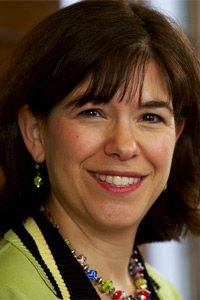Professor Schneider Receives the Women in the Law 2009 Award by the Wisconsin Law Journal
 A few weeks ago, the Wisconsin Law Journal awarded my colleague Andrea Kupfer Schneider the prestigious Women in the Law Award for 2009. Professor Schneider was one of 21 outstanding women who were selected this year by the Journal for their work with Wisconsin’s legal community. In its tribute to Professor Schneider, the Journal traces her passion for the law back to her grandfather’s practice, and describes her love for Marquette Law School and our first-class Alternative Dispute Resolution Program.
A few weeks ago, the Wisconsin Law Journal awarded my colleague Andrea Kupfer Schneider the prestigious Women in the Law Award for 2009. Professor Schneider was one of 21 outstanding women who were selected this year by the Journal for their work with Wisconsin’s legal community. In its tribute to Professor Schneider, the Journal traces her passion for the law back to her grandfather’s practice, and describes her love for Marquette Law School and our first-class Alternative Dispute Resolution Program.
As a woman in the law, I am thrilled with Professor Schneider’s award! Nobody more than Andrea Schneider deserves this recognition for her tireless work, service, and leadership at Marquette University Law School and in so many other institutional and noninstitutional organizations. Since I have known Andrea Schneider, she has been a primary source of inspiration and example, and I know she is a guide and example for all of our students and colleagues. I admire Professor Schneider as a teacher, a great scholar, and one of the most outstanding leaders in committees and programs I have ever met in my career. As a mother, I also tremendously admire Andrea Schneider’s ability to balance work and family, multitask, and get everything done, always impeccably.
Congratulations again, Professor Schneider, and thanks so much for the wonderful role model you are for all of us women in the law!

